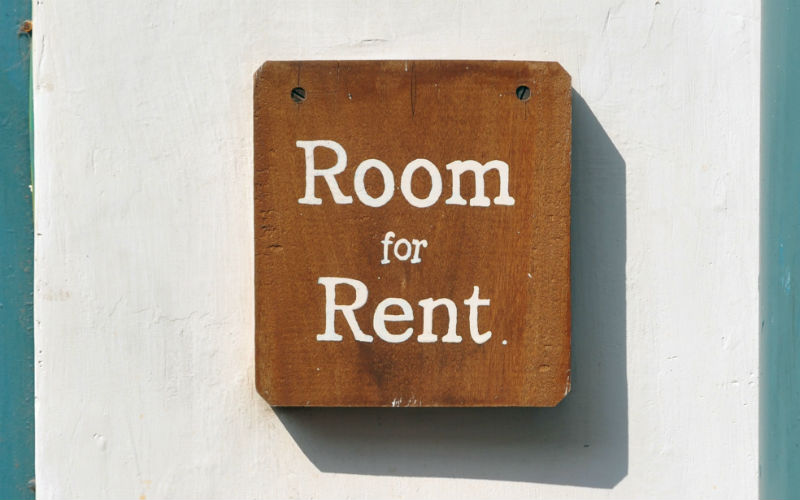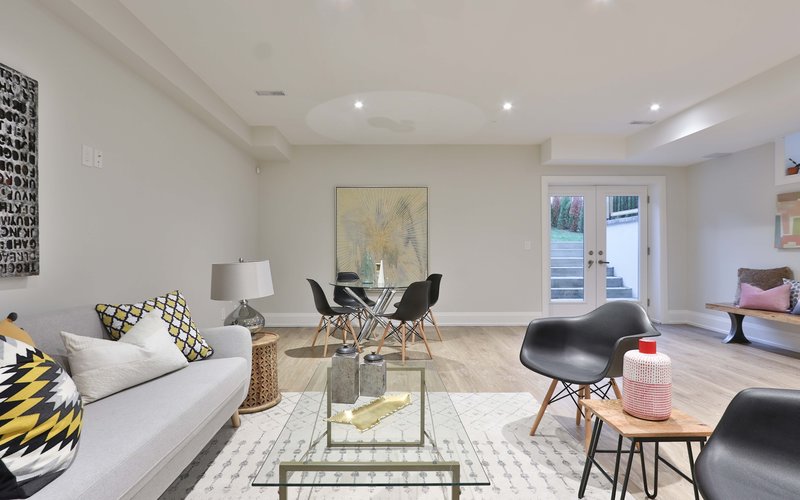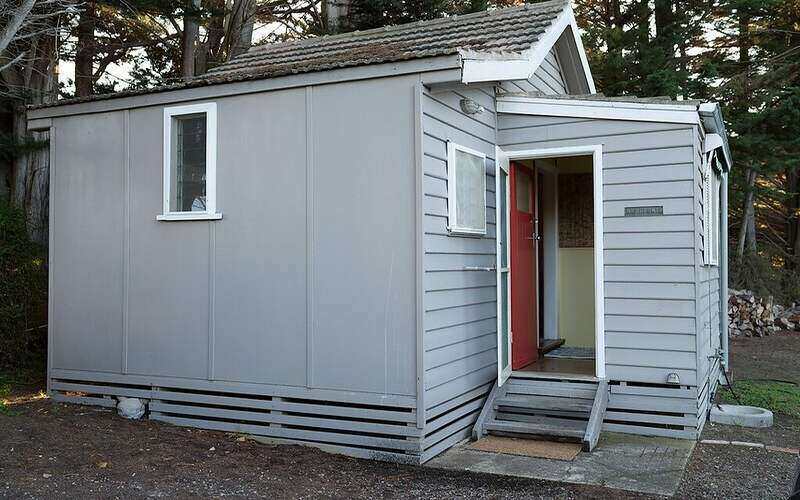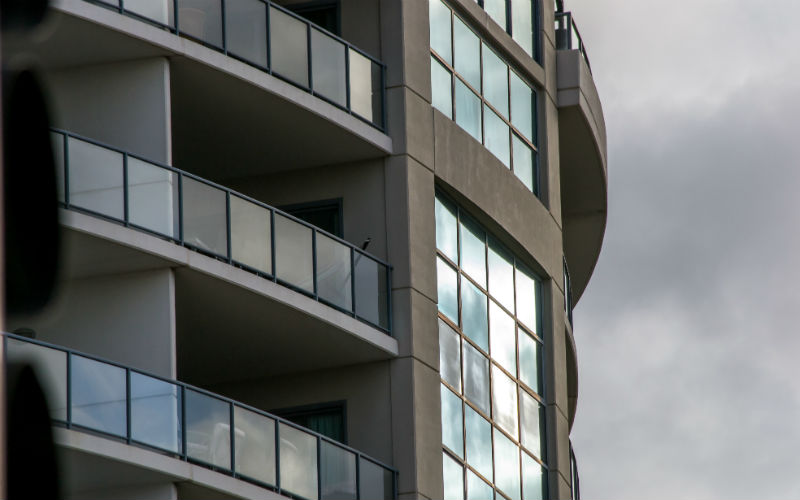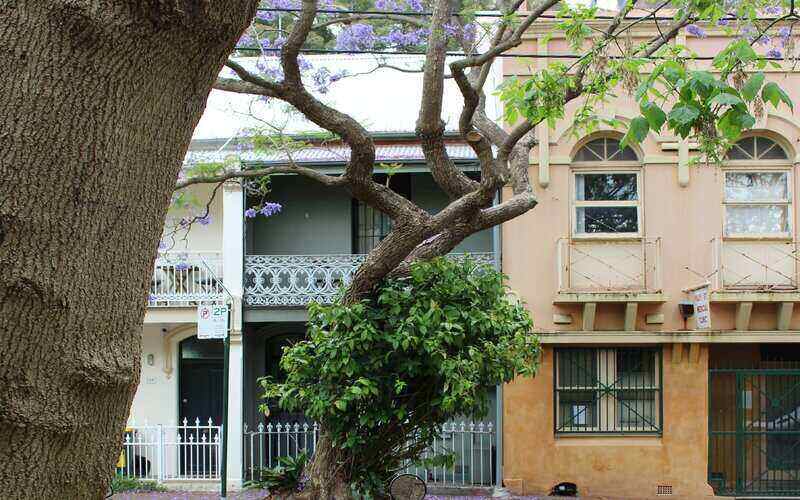Say you're a landlord doing market research on similar rental properties in your area. If you realise the rent you're charging is too low, or not representative of your property's worth, you are within your rights to raise your tenants' weekly rent.
This isn’t just at your discretion though. There are rent increase rules governing how much you can raise rent by, how often you can do so and how much notice you need to give your tenants.
Before you think about increasing the rent you’re charging, you need to know your state’s rental increase laws, or you could end up in front of your state’s Administrative Tribunal.
How rental increases work
Rental increases are very common; landlord’s aren’t expected to keep their rent stagnant every year. There are a number of reasons you might decide to increase the rent charged on your investment property:
-
The market might have risen and other rental properties that are similar to yours might have upped their rents.
-
Your house might have increased in value.
-
Interest rate hikes have lifted your loan repayments, so you need extra rental income
-
You might have conducted some renovations in the home which has improved the standard of living.
-
The tenants might be requesting extra amenities, like air-conditioning, which could be an extra cost for you.
-
You might need more income because of inflation.
Once you’ve worked out how much you’re going to increase the rent by, you need to provide the tenants with an appropriate amount of written notice. You can’t just tell them in person; it needs to be officially documented.
Once the new date for the rent increase arrives, they will have to start paying you the increased amount, and a good property manager can handle the rest.
Read also: Rental rates up more than 10% in 2023 with vacancies near record lows.
Rent increases in 2024
The InfoChoice Rent Crisis Survey shone a light on how rent increases throughout 2023 affected Australian tenants. Shockingly, 70% of renters reported spending more than 30% of their gross income in rent, the most common definition of rental stress. About 41% of respondents saw their rent rise by more than 10% through the year, with 15% seeing annual increases that exceeded 20%.
Rental increase laws across Australia
There are different rules around rental increases depending on the state your investment property is in. You can’t just ring up your tenant on a whim and let them know you expect an extra $100 next week or they will be evicted. Every state requires a certain amount of notice, and limits how often rent can be increased.
We’ve summarised the laws in each state, but you can check out your state’s specific rules in detail in the residential tenancies acts linked below.
Each state’s Residential Tenancies Act
Maximum rent increase in New South Wales
|
Type of lease |
Length |
Rental increase rules |
|---|---|---|
|
Fixed term agreement |
Two years or more |
Rent can only be increased once in a twelve month period. The landlord must provide at least 60 days written notice prior. |
|
Fixed term agreement |
Less than two years |
Rent can only be increased during the fixed term if the agreement specifies it, including the amount or the exact method of calculation. If the agreement sets out an amount and a date, the 60 days notice does not apply. |
|
Periodic agreement |
Continuous |
Rent can only be increased once every twelve months, and 60 days notice must be provided. |
|
No written agreement |
n/a |
Landlords cannot increase rent during the first six months of tenancy |
For fixed terms, the method of calculation cannot be a general statement like ‘in line with inflation.’ There needs to be either a $ amount or a specific calculation, like a percentage change.
As per section 41(2) of the NSW Residential Tenancies Act, landlords must also provide at least 60 days' notice if they intend to increase rent upon renewal of the lease agreement.
Tenants can apply to the NSW Civil and Administrative Tribunal (NCAT) within 30 days if they think the new rent is excessive. The tribunal will consider comparable rents for similar properties in the area, the property’s condition and the landlord’s expenses to determine whether the increase is excessive. The tribunal has the authority to set the property's rent for the following twelve months.
InfoChoice Rent Crisis Survey insights
|
Rent increase in 2023? |
Survey responses from NSW tenants |
|---|---|
|
Rent did not increase in 2023 |
23.5% |
|
0-10% increase |
34.4% |
|
10-20% increase |
25.1% |
|
20-30% |
10.2% |
|
30%+ |
4.8% |
-
23.5% of NSW tenants believe their landlord has been unfair with their rent
-
36.6% say property owners are most responsible for rent increases, ahead of the RBA and the Government.
Maximum rent increase in Victoria
|
Type of lease |
|
|---|---|
|
Fixed |
Rent can only be increased if the terms of the lease allow for it, and specify how the increase will be calculated. The renter must be informed using a ‘Notice of rent increase’ form, which must be given at least 60 days in advance. |
|
Periodic |
The renter must be given at least 60 days notice before rent increases. The notice must include the amount, the method the increase was calculated and inform the tenants of their right to appeal. |
As with New South Wales, the landlord/agent needs to provide the tenant with at least 60 days' written notice for any rent increase, except when it is based on a fixed dollar amount, in which case it will automatically increase on the specified date in the lease.
Victorian landlords may not increase the rent more than once every twelve months.
Tenants can submit a request to VCAT (Victorian Civil and Administrative Tribunal) within 30 days if they think the proposed rent increase is too high.
InfoChoice Rent Crisis Survey insights
|
Rent increase in 2023? |
Survey responses from VIC tenants |
|---|---|
|
Rent did not increase in 2023 |
13.8% |
|
0-10% increase |
41.3% |
|
10-20% increase |
26.8% |
|
20-30% |
11.6% |
|
30%+ |
6.5% |
-
29.7% felt their landlord had been unfair with rent
-
29.7% held property owners most responsible for rent increases
Maximum rent increase in Queensland
|
Type of lease |
|
|---|---|
|
Fixed |
Rent can only be increased if the terms of the lease allow for it, and specify how the increase will be calculated. Notice must be given at least 60 days in advance. |
|
Periodic |
The renter must be given at least 60 days' notice before rent increases. The notice must include the amount of the increase and the date from which it will be payable. |
From the 1st of July 2023, rent in Queensland can only be increased if it has been at least 12 months since the current amount became payable. This applies even if the rent increase is for a new agreement at the end of a fixed term. There is no requirement in Queensland to serve a notice about increases between leases.
Tenants may apply to QCAT (Queensland Civil and Administrative Tribunal) about excessive rental increases.
InfoChoice Rent Crisis Survey insights
|
Rent increase in 2023? |
Survey responses from QLD tenants |
|---|---|
|
Rent did not increase in 2023 |
22.4% |
|
0-10% increase |
29.1% |
|
10-20% increase |
32.7% |
|
20-30% |
12.1% |
|
30%+ |
3.6% |
-
27.3% felt their landlord had been unfair with rent
-
29.1% held property owners most responsible for rent increases
Maximum rent increase in Western Australia
|
Type of lease |
|
|---|---|
|
Fixed |
Rent can only be increased if the terms of the lease allow for it, and specify how the increase will be calculated. Notice must be given at least 60 days in advance, and can only take effect after six months. |
|
Periodic |
The renter must be given at least 60 days' notice before rent increases. The notice must include the amount of the increase and the date from which it will be payable. |
Written notice of an increase must be given to the tenant in an approved form from the WA Department of Commerce.
Renters can apply to the Magistrates Court to argue against what they deem to be an excessive increase. The Court will consider the following:
-
Rent in comparable properties in the area
-
Estimated value of the premises
-
Cost of upkeep and services provided by either party
-
General condition of the property
InfoChoice Rent Crisis Survey insights
|
Rent increase in 2023? |
Survey responses from WA tenants |
|---|---|
|
Rent did not increase in 2023 |
23.4% |
|
0-10% increase |
34.1% |
|
10-20% increase |
25.1% |
|
20-30% |
12.1% |
|
30%+ |
7.2% |
-
28.7% felt their landlord had been unfair with rent
-
29.9% held property owners most responsible for rent increases
Maximum rent increase in South Australia
|
Type of lease |
|
|---|---|
|
Fixed |
Rent can only be increased if the terms of the lease allow for it, and specify how the increase will be calculated. Notice must be given at least 60 days in advance. |
|
Periodic |
The renter must be given at least 60 days' notice before rent increases. The notice must include the amount of the increase and the date from which it will be payable. |
Rent in South Australia can only be increased once every 12 months or 12 months from the start of the agreement.
Tenants can apply to the South Australian Civil & Administrative Tribunal (SACAT) for the rent to be changed if they feel it is excessive.
InfoChoice Rent Crisis Survey insights
|
Rent increase in 2023? |
Survey responses from SA tenants |
|---|---|
|
Rent did not increase in 2023 |
20.5% |
|
0-10% increase |
38.5% |
|
10-20% increase |
28.2% |
|
20-30% |
9.7% |
|
30%+ |
4.1% |
-
20.5% felt their landlord had been unfair with rent
-
29.7% held property owners most responsible for rent increases
Maximum rent increase in the ACT
|
Type of lease |
|
|---|---|
|
Fixed |
Rent can only be increased if the terms of the lease allow for it, and specify how the increase will be calculated. Notice must be given at least eight weeks in advance. |
|
Periodic |
The renter must be given at least eight weeks' notice before rent increases. The notice must include the amount of the increase and the date from which it will be payable. Rent can be increased once every 12 months |
The ACT prescribes rental increases to be at most 110% of the percentage change in Australia’s consumer price index (CPI) for rents. A lessor can increase the rent on a property by 10% more than the increase in rent CPI since the last rental increase or the tenancy began. For example, let's say a landlord wanted to increase rent in May 2023, and last increased in May 2022. In that time, rent CPI rose 5.6%. That means the landlord could increase rent by up to 6.16% (5.6+0.56).
Tenants can write to ACAT to apply for a review if they believe they’ve been handed an excessive rent increase.
InfoChoice Rent Crisis Survey insights
|
Rent increase in 2023? |
Survey responses from ACT tenants |
|---|---|
|
Rent did not increase in 2023 |
24.6% |
|
0-10% increase |
47.5% |
|
10-20% increase |
18.0% |
|
20-30% |
6.6% |
|
30%+ |
3.3% |
-
21.3% felt their landlord had been unfair with rent
-
39.3% held property owners most responsible for rent increases
Maximum rent increase in Tasmania
Rent in Tasmania can only be increased if there is a written lease that allows for rent increases, or the lease isn’t in writing. Tenants must be given at least 60 days' notice before the new rent amount is due.
Rent can only be increased at least 12 months after the tenancy begins, even if the lease is extended or renewed in this time. If a tenant signs a six month lease for example, rent cannot be increased if they renew.
Although there’s technically no limit on the amount the rent increase can be, tenants can challenge an excessive increase with the Residential Tenancy Commissioner (RTC) within 60 days of the increase.
InfoChoice Rent Crisis Survey insights
|
Rent increase in 2023? |
Survey responses from TAS tenants |
|---|---|
|
Rent did not increase in 2023 |
21.7% |
|
0-10% increase |
44.9% |
|
10-20% increase |
26.1% |
|
20-30% |
5.8% |
|
30%+ |
1.4% |
-
27.5% felt their landlord had been unfair with rent
-
33.3% held property owners most responsible for rent increases
Maximum rent increase in the Northern Territory
The Northern Territory has the shortest notice period laws for rental increases, only requiring 30 days of written notice. The notice needs to clearly state:
-
Amount of the increase;
-
When the increase begins; and
-
That the notice states an intention to increase rent
The landlord is only allowed to increase the rent at least six months after the beginning of the tenancy, and subsequent increases can only be made once every six months. For fixed-term leases, the stipulations for rental increases must be specified in the rental agreement.
InfoChoice Rent Crisis Survey insights
|
Rent increase in 2023? |
Survey responses from NT tenants |
|---|---|
|
Rent did not increase in 2023 |
60.9% |
|
0-10% increase |
30.4% |
|
10-20% increase |
4.3% |
|
20-30% |
4.3% |
|
30%+ |
0.0% |
-
0.0% felt their landlord had been unfair with rent
-
56.5% held property owners most responsible for rent increases
What is a reasonable rent increase?
As you might have picked up, most states have no limit to how much you can increase your rent by, only how often. You could increase it by $100 a week if you wanted to, but that doesn’t mean the tenants won’t deem it excessive. If they feel it’s excessive they could either move out at the next opportunity, stop paying altogether, or take you to your state’s tribunal, which will generally consider some of the following:
-
A range of market rents usually charged for comparable properties
-
The difference between the proposed and current rent
-
The state of repair of the property
-
The term (length) of the tenancy
-
The period since the last rent increase
How to work out how much rent you should charge
There’s a fine line between charging too much rent and too little. Charge too much and you’ll have an empty property on your hands, charge too little and you won’t get a decent return on your investment. Owning an investment property means you’re trying to both maximise your profit-earning potential while also providing housing for another person - two things that can often clash.
A common, simple benchmark you can use to work out your rent is to charge $100 for every $100,000 the property is worth, but this can only really work for mid-value properties. Cheap properties would charge too little for rent while expensive ones would charge too much.
A more reliable way to work out how much rent you should charge is to check and compare the average and median rents of properties in your suburb (for units and houses) using an online database and adjust your own price accordingly.
Read our breakdown of how much rent should you charge for more detailed analysis of how you can properly set the correct rent for your investment property.
Read also: Rents rise at fastest annual pace since 2008: CoreLogic
Savings.com.au's two cents
While it might seem unfair to your tenants, raising your rent as a landlord is a pretty important part of owning a property. Reasonable tenants usually expect their rent to increase by a reasonable amount semi-regularly, and not increasing your rent in line with changing market conditions and inflation can adversely impact your rental yield.
The real estate industry is extremely competitive though. If you charge too much rent, your tenants could move on or even report you to your state’s tribunal. So, it's important to get it right.
If you’re not sure how to work out what rent you should be charging, a real estate agent or property manager with experience and knowledge of the surrounding area could be a good person to consult.
First published on March 2022
Originally published by William Jolly on 30 October 2020, updated by Harry O'Sullivan on 8 March 2024

Ready, Set, Buy!
Learn everything you need to know about buying property – from choosing the right property and home loan, to the purchasing process, tips to save money and more!
With bonus Q&A sheet and Crossword!
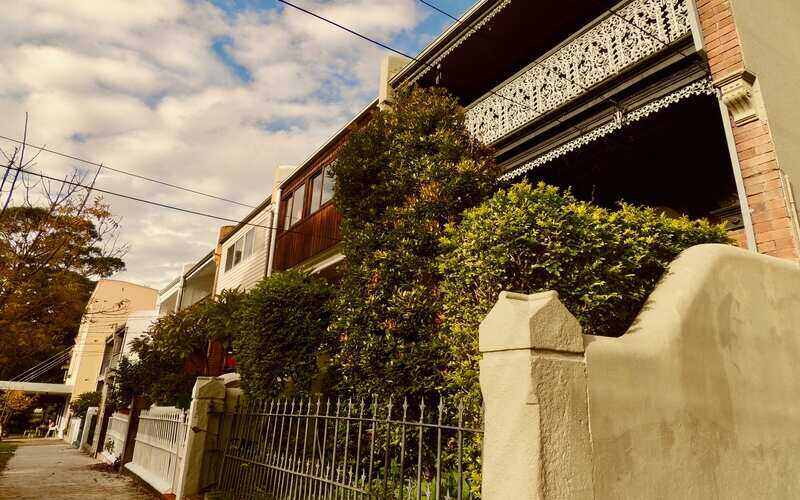


 Aaron Bell
Aaron Bell
 Denise Raward
Denise Raward


